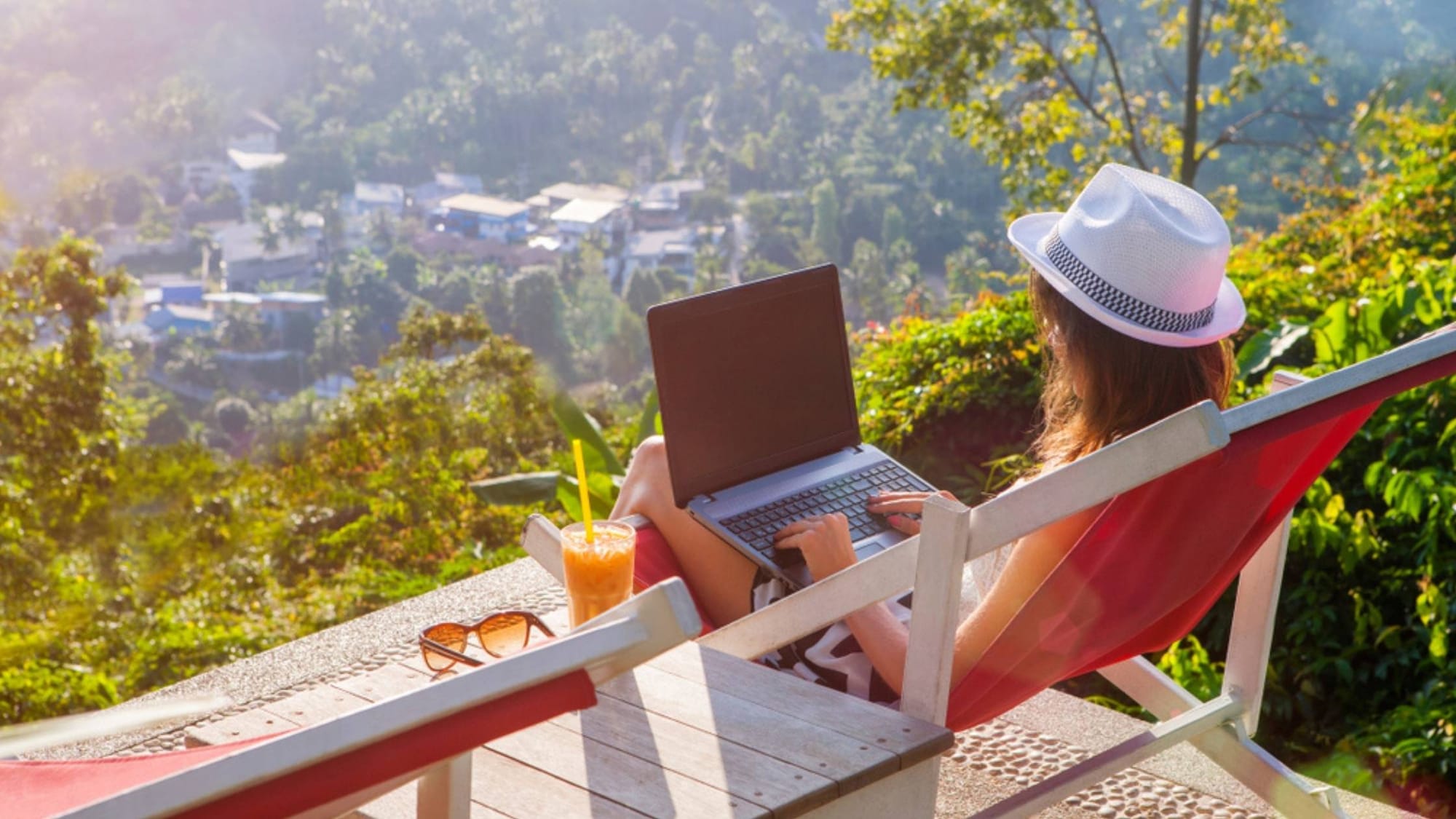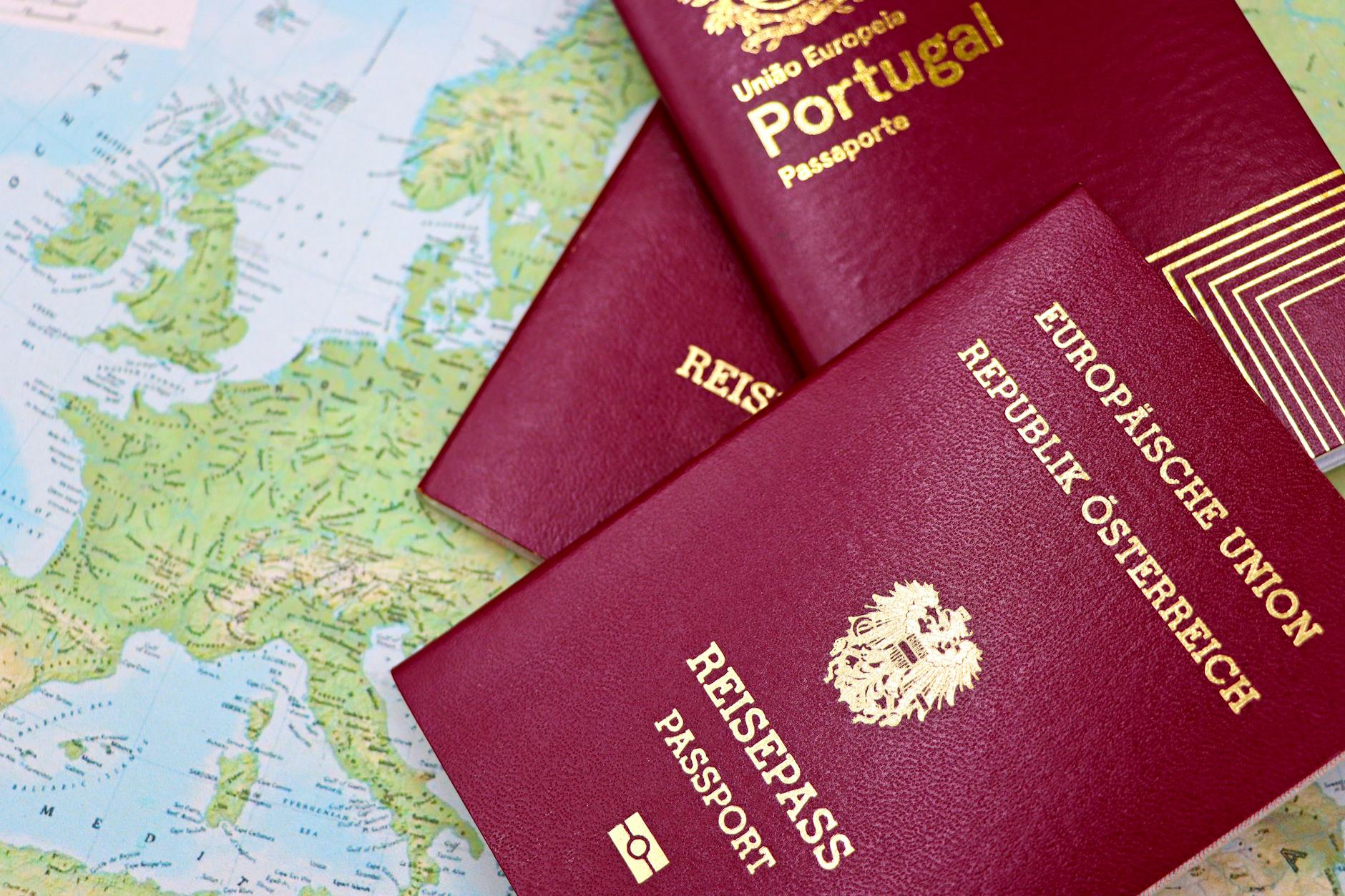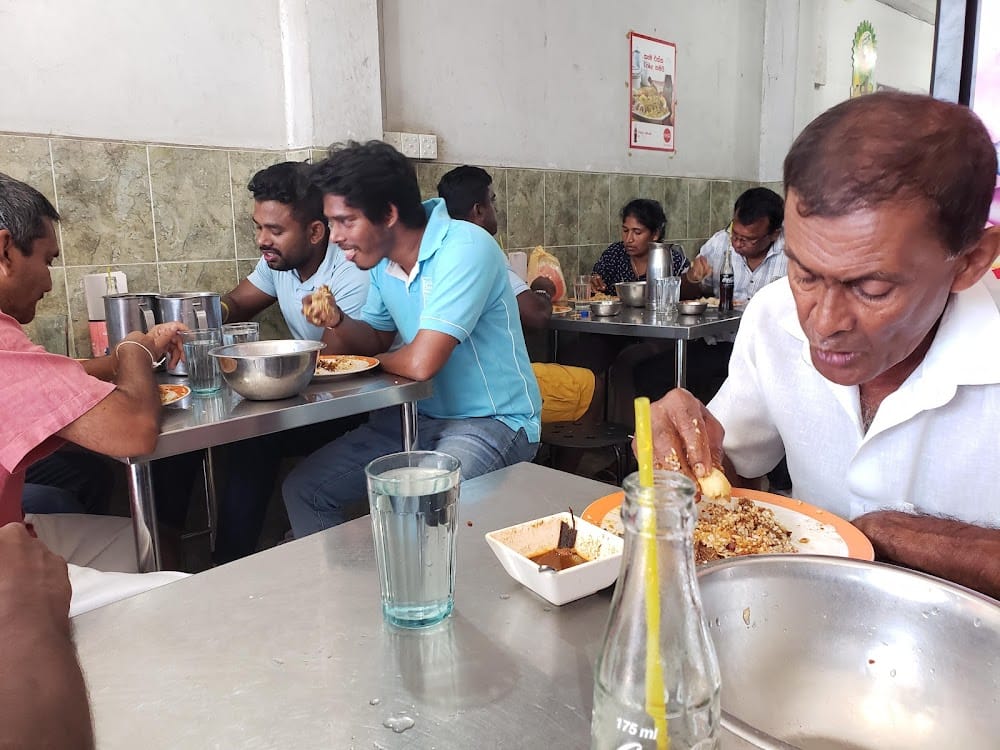Visualize it.
You're typing away on your computer. Waves are pounding just a few yards offshore. Your coffee costs less than a dollar. And your monthly rent? Less than many people pay for a weekend hotel stay.
This is not a fantasy.
It's Sri Lanka in 2025 and it might well be the digital nomad's nirvana you never even knew you desired.
While the rest of us fight over WiFi tables in extortionate Bali cafes, you can be discovering something unique. Endless palm-lined beaches. Carpet-like green velvet tea plantations. And people who greet you with genuine smiles instead of tourist-oversmiling grins.
Let's face it.
You're most likely thinking: "Too good to be true." And rightfully so. Every "hidden gem" travel spot has its issues.
The internet may crash during your most important Zoom meeting. Visa extensions are bureaucratic nightmares. And that postcard-perfect beach cafe might not provide the workspace your back needs for eight hours a day.
The thing is:
Smart nomads don't look for perfection.
They look for the middle ground between adventure and functionality. Between cost and comfort. Between flight and productivity.
And Sri Lanka? It's pleasing that sweet spot more than anywhere right now.
The Freedom to Remain (Without Breaking Immigration Laws)
Virtually all digital nomads dread visa runs. Constantly having to search for exit dates. Existing in a state of fear of making one mistake and ending their remote work dream.
Sri Lanka understands this pain.
Even though they have not yet introduced a digital nomad visa, it is surprisingly simple to stay legally. The tourist visa gives you 30 days initially, but listen closely: you may renew it for a maximum of 270 days total.
That's nine months legally.
No visa runs to the countries next door. No harried border crossings with your laptop case, praying customs doesn't ask too many questions about your "holiday" that's lasted six months.
Most nomads begin with the Electronic Travel Authorization online. Easy. Uncomplicated. Completed in minutes instead of weeks.
For the planners out there, there are several entry visas if you're looking at visiting neighboring nations. And for those looking at big plans, business collaboration visas open the door if you're looking at local collaborations.
The secret? Make sure to check the most recent requirements on the official Sri Lanka Department of Immigration website. Rules change. Stories from nomad Facebook groups may not be up-to-date.
Your Money Goes Further Than You Think
You know that coffee I mentioned? The dollar one?
It's real. And it's just the beginning.
Forget everything you believe you know about Bangkok or Mexico City digital nomad budgets. Sri Lanka operates on a different scale of economics.
Your choices in where to live say it all:
Budget tourists find decent guesthouses and small apartments for $250-400 per month. Not hostel dorms for trekking backpackers. Real homes. With good WiFi, clean toilets, and often a kitchen.
Ready to live a little larger? $600-1200 for villas with pools, large apartments overlooking the city, or beachfront mansions whose office windows face the Indian Ocean.
Meals are an adventure rather than an expense. Street stalls and local restaurants provide fantastic curry meals for $5-10 a day. Fancy? Fine restaurants with fresh seafood and international cuisine rarely exceed $30 a day.
Even co-working spaces in your business lifeline are $50-150 per month depending on location and services. That's in contrast to the $300-500+ you'd shell out for most Western cities.
Transportation? Tuk-tuks are a few dollars per ride. Buses are free but slow. Most nomads rent scooters for $100-200 per month for ultimate freedom.
Your biggest challenge won't be affording Sri Lanka. It'll be explaining why you're leaving.
The Internet Reality Check
Now for the elephant in the room.
You've heard the stories about developing countries' internet. Calls dropping mid-call. Files taking hours to upload. Zoom calls that are stop-motion-like.
Sri Lanka's internet has a long, long way to come, but let's not delude ourselves: location matters.
Colombo offers speeds comparable to many Western city centres. 15-30 Mbps is standard, with some areas having significantly more. Major coastal towns like Galle and the surf beaches of Ahangama are close behind.
The mountain towns? Ella's stunning vistas are joined by sometimes infuriating connection speeds. Not impossible for most remote work, but video calls might require some accommodation on your end to time.
Your back-up plan: mobile data.
Dialog and Mobitel have surprisingly good 4G. Smart nomads pay $20-30 for a local SIM card with whopping data allowances. When your cafe WiFi strangles on a client presentation, your phone hotspot to the rescue.
Co-working spaces turn the tables. Career-level connections, backup generators for power outages, and neighbors watching your back when disaster strikes.
Free WiFi is standard at most beach cafes, but keep expectations in check during tourist season peak times. That Instagram-worthy corner may crawl to unusable speeds when fifty other users get on board.
Diversify your work locations. Cafe hopping is no longer for novelty, it's a sensible tactic.
Where Dreams Meet Deadlines
The tiny island nation of Sri Lanka ensures that you're never trapped in one environment. Congested city? The beach is a two-hour drive. Need mountain stimulating activity? Ella's got lower temperatures and hiking trails waiting for you.
Colombo - buzzes with urban energy. The fastest internet, most co-working spaces, most networking opportunities. Hatch Works and Likuid Spaces host events where you'll rub shoulders with startup founders, freelance designers, and more. The downside? Still a third-world city with traffic, noise, and city tension.
Galle Fort - offers a scarce commodity: colonial buildings with modern nomad needs. Hip cafes tucked away within 400-year-old walls. Cobblestone roads that have inspired countless Instagram snaps. Artists, writers, and business creatives are attracted here for the inspiration factor. WiFi is excellent, crowds are manageable, and the pace promotes deep work.
Weligama and Ahangama - are the surfing town dreams. Verse Collective and Ceylon Sliders are not just co-working actually, they're community spaces. Surf in the morning, work sessions in the afternoon, beers with other nomads in the evening who understand your way of life. The ocean provides constant stress relief between the deadlines.
Ella - invites you to travel at a slower pace. Mountain chiller air, mists in the valleys, and a pace that encourages more breath-holding. Fewer business-facing co-working spaces, but guesthouses welcome laptop-wielding guests. Perfect for writers, designers, and all whose work should be far from the madding crowd.
Mirissa - blends productivity and paradise. Quiet beaches that aren't too touristy, whale watching that brings perspective to why you became location independent, and coffee houses that honor the nomad lifestyle. Less touristy than some beach towns, more refined than raw secrets.
Each spot has its vibe. It's your responsibility to find out which one suits your work habits and life goals.
The Co-Working Revolution
Five years ago, Sri Lankan professional workspace was hotel lobbies and prayer. Today, specialized co-working spaces understand exactly what remote workers need.
Hatch Works - in Colombo is at the forefront. Fast internet, client call meeting rooms, engaging networking events. The professional vibe you'd expect in any big city.
Verse Collective - in Ahangama offers a beachfront and has decent work facilities. Quality coffee, reliable power, and coworkers who balance between work hours and surf hours. Their Instagram is heaven, yet their WiFi speeds tell them they're not messing around.
Ceylon Sliders - in Weligama supports the surf-work-repeat cycle. Rentals of equipment, board storage, and workspace that understand your time is about calls and waves.
Coworking Colombo - delivers no-frills functionality on budget-friendly terms. Perfect for nomads who care more about saving than aesthetic but still need professional internet and printing functionality.
The facilities share common advantages: backup generators, shared know-how, and knowledge of nomad needs. They're foreseeing difficulties before you even recognize you have them.
Life in the Slow Lane (And Why That's Just Right)
Say goodbye to Bangkok hustle. Sri Lanka functions at human speed.
Your typical day starts with optional but highly suggested sunrise meditation. Work blocks in the morning take advantage of early morning coolness and best energy levels. Afternoon breaks become beach strolls, tea plantation visits, or simply reading without guilt.
Nights are spent on fresh seafood, local curries, and hours-long conversations instead of minute-long chats. Weekend outings feel inevitable—not because tourist spots drive you, but because the country is so beautiful that it will keep you off your screens.
Weekend getaways of choice:
Adam's Peak hiking for sunrise views that redefine your love of early mornings. The train journey from Kandy to Ella, consistently voted the most beautiful in the world. Yala National Park safaris in which leopards embarrass wildlife documentaries.
This way of life challenges Western productivity dependencies. You work less but on larger projects. Stress decreases and creativity increases. The constant connectedness pressure melts with ocean noise replacing traffic noise.
There are nomads who can't transition. If you're hooked on city chaos and 24/7 availability, rural Sri Lanka will feel claustrophobic rather than liberating.
Most, however, discover something they didn't anticipate: productivity doesn't require anxiety. Good work results from healthy living.
The Challenges No One Tells You About
Every paradise has its thorns. Sri Lanka's are bearable but real.
Power cuts, although fewer than those of past years, still happen. Normally short, sometimes lasting longer. Your laptop battery becomes tool kit equipment, not an indulgence. Back-up generator co-working spaces charge their membership fees for such occasions.
Transportation is a patience issue. Public transport is cheap as chips but operates on casual schedules. Tuk-tuks are faster but negotiating fair prices is a learned art. Scooter and motorbike hire are free but require courage riding in traffic as per other countries' regulations.
Visa regulations place planning restrictions. That 270-day maximum time to expand is going to force true long-term nomads to move on or perform visa runs. Not having a dedicated digital nomad visa equates to bureaucratic encounters that other countries have streamlined.
Cultural sensitivity demands constant attention. Outside of tourist areas, modest clothing and respectful behavior aren't suggestions. An effort to learn basic Sinhala or Tamil phrases draws genuine appreciation and simpler daily interactions.
Weather can disrupt schedules. Monsoon rains can take out internet links and outdoor activities. Tourist seasons strain infrastructure and prices.
These challenges don't devastate the nomad experience. They shape it. The key is knowledge and planning.
The Insider's Playbook
Smart nomads plan ahead with plans, not just wanderlust.
Scouting spots - is more critical than spontaneity. Spend your first week to try internet speeds, visit cafes, and scout alternative working spaces. Tourist areas are more about aesthetics than functionality. Residential neighborhoods occasionally yield better long-term returns.
Community connection - accelerates your integration. Facebook groups like "Sri Lanka Digital Nomads" provide current advice, meetup events, and troubleshooting help. Local nomads understand problems that travel guides overlook.
Infrastructure backup plans - save precious work days. Having more than one internet source, portable power packs, and workspaces that can be relocated prevents single points of failure. Your most important client call happens when the electricity goes out be ready.
Cultural immersion - enhances your overall experience. Learning food vocabulary, transport vocabulary, and even basic social manners opens doors that remain closed to obvious tourists. Locals respond differently when you demonstrate genuine interest rather than entitled assumptions.
Blended lifestyle planning - optimizes Sri Lanka's geography. Capitalize on the nation's compact size and adapt your environment without compromising productivity. Morning beaches, afternoon mountains, and downtown networking sessions all become possible options within one-day increments.
The nomads that thrive here balance adaptation and intention. They blend local rhythms without compromising professional standards.
Why Sri Lanka, Why Now
Every nomad destination becomes saturated. Bali did decades ago. Lisbon is coming to saturation. Mexico City's nomad contingent exploded beyond what was sustainable.
Sri Lanka is at the perfect time: infrastructure developed enough for professional needs, prices still budget-friendly for nomad budgets, communities small enough that real relationships can be forged.
The government views digital nomads as economic contributors, not a tourism problem. Local businesses tailor services to nomad needs. Internet infrastructure continues to improve and costs remain reasonable.
Maybe most of all, Sri Lanka offers something increasingly rare: authenticity. There is tourism, but it is not overwhelming. Local culture thrives alongside nomad communities. You're experiencing the getting-up-and-growth of a destination's nomad population rather than part of one during its prime.
This window will eventually close.
Success spawns popularity. Popularity drives up prices and forces true culture into tourist attractions. Sri Lanka in 2025 may be very different from 2030.
Early adopters always get the best experience. Lower prices, richer local connections, and the joy of discovering something novel before the mainstream shows up.
Your Next Decision
You have three alternatives.
Continue reading until analysis paralysis sets in. Read seventeen more blog posts, view a million YouTube videos, and debate the decision until the opportunity passes by. Lots of people do this. It feels secure but achieves nothing.
Wait for the "perfect" moment. When your project is finished. When you are richer. When visa rules make sense. When infrastructure keeps getting better. Perfect moments rarely arrive, and opportunities disappear as you wait.
Or take the plunge.
Purchase your ticket. Apply for your visa. Start scouting out neighborhoods and co-working spaces. Choose action over analysis, experience over security, and possibility over certainty.
Sri Lanka in 2025 offers something precious: the freedom to build a way of life according to your own priorities, rather than other people's ideas. Morning surfing, afternoon client calls. Tropical adventure breaks between deadlines. A standard of living that makes six-figure salaries a luxury just to get by.
The infrastructure exists. The people are friendly. The timing is right.
Your laptop works where there's internet. Your customers care about deliverables, not zip codes. Your life can be where you want it to.
So why not make it amazing?
The surf's calling. The tea plantations await. Your next Zoom call could be on a beach with a view that will make your coworkers envy your commute.
Sri Lanka is not a utopia. None of us are.
But for digital nomads looking for the ideal balance of adventure and practicality, affordability and comfort, escape and efficiency, it might just be good enough.
You get on a plane when you want to.
The question isn't whether Sri Lanka will work for your remote work.
The question is whether you're willing to live the life that comes with choosing adventure over worry, experience over expectation, and possibility over predictability.
The response, inwardly, most likely is yes.
All you have to do now is act on it.








